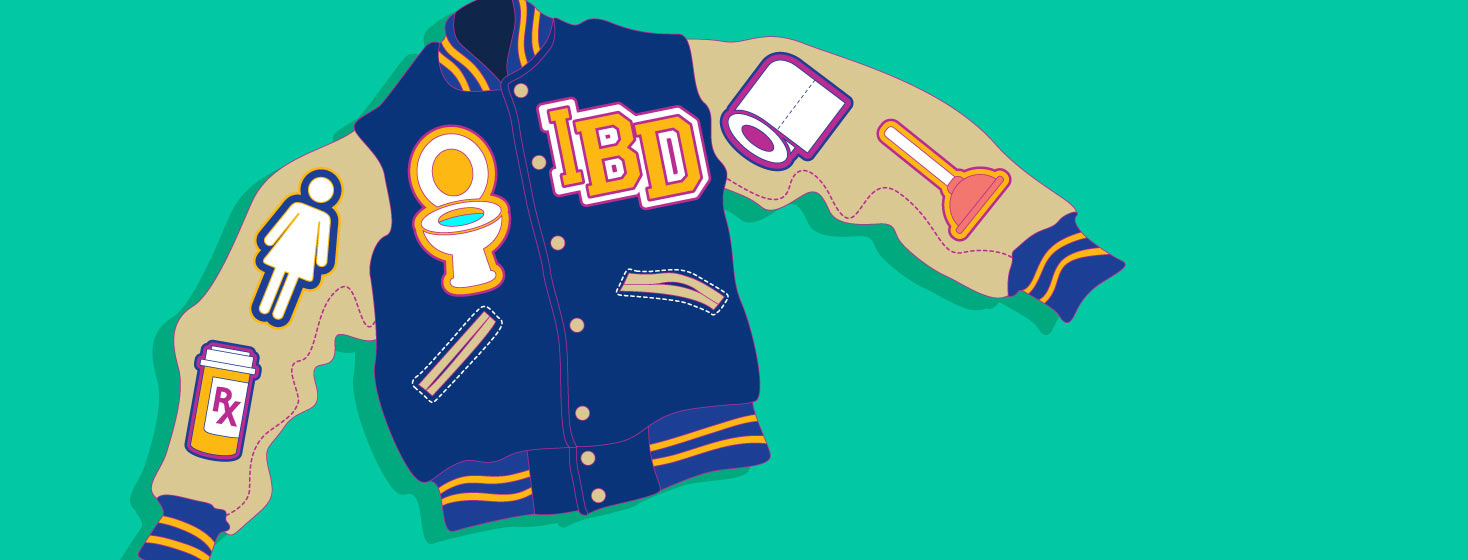College as a Sixth-Year Senior, a Crohn’s Story
Once upon a time, I was the youngest student in my college classes. By the time I graduated, I was the oldest. The end! Just kidding. This is how I became a sixth-year senior due to navigating college with undiagnosed Crohn’s disease.
I started college at the age of 17 and I was by far the youngest person in my classes at the local college. My health in high school was pretty much garbage. I spent more time taking classes from home via conference calls in a program called Medical Homebound than I did in an actual classroom.
Academic accommodations for IBD
Anyway, while my Crohn’s disease was not yet diagnosed, doctors back then decreed I had severe IBS that impacted most of how my life was lived. Yet, it wasn’t until I moved out of state that I found out I could have gotten reasonable accommodations to help make academic life easier.
Bummer.
My first two years of college were spent navigating how many classes I could maintain with a decent grade. And by maintain, I don’t mean project load or homework. The culprit was attendance and tardiness clauses that could impact grades. I’ll explain.
Considering restroom needs with IBD
As a commuter student, regardless of whatever time I left, I had to contend with traffic and parking issues. And then with IBD, you have to factor in restroom needs. There were quite a few classes in my first and second year that had strict attendance and tardiness clauses. These clauses would impact your overall grade, regardless of your work or participation.
I tried to do the practical thing like speak to the professor about the health issue and offer a doctor’s note to verify. Either they looked at me as an entitled child, or they didn’t care. I usually ended up dropping those classes during the drop period, because my sanity and grade point average were important to me.
Professors didn't care about my health
Dropping classes because a professor wouldn’t work with my health caused a back-log of pre-requisite courses. I was always playing catch up or trying to get ahead of pre-requisites during summer sessions. As a result, I attended on an almost year-round basis. I found it was not the end of the world. Especially since professors teaching during the summer seemed to enjoy teaching more. I also fought less for parking, and they were more amiable to my needing to leave the room early or coming in a few minutes late because of the bathroom.
I finally hit my stride
Along the way, between sophomore and junior year classes, I transferred to a better journalism program at a more competitive university. I felt like I had hit my stride in managing college course load, studying, and working for a publisher. There was just one problem. The university wouldn’t transfer quite a few of my junior level course credits over. They counted as electives, but I would have to retake the courses to satisfy academic requirements. It was a blow. By 20 years of age, I fixated on graduating by 21.
As 21 came and went, I felt like I would be 5 million years old before graduating. It passes, I promise.
It was all so frustrating
Not long after, my partner at the time received a job opportunity out of state. He said the magic words, let’s look at colleges up there. After receiving the acceptance letter, the university took the majority of my academic and elective credits. I only had to repeat one academic class (this made my third time) because it didn't match the program's syllabus. It is laughable now, but frustrating at the time.
Upon entrance to the new university, I found it easy to discuss my health issues with the professors, the dean of the college, assisting staff and the personnel responsible for student life.
There is a department to help people with health issues
When my relationship ended a year later, I decided to go for the full college experience. This made me a sixth-year senior and living on campus for the first time. The head of student living was empathetic to my bathroom needs and arranged it so that I would only have to share the bathroom with one person and had as much privacy as necessary with my own room. It isn't widely known that a department dedicated to helping students with health issues and special needs exists. I wish this info was more widely available when I entered college. I still see patients posting about their struggles.
Better late than never, right?
Despite Crohn's, I graduated
I was 17 and the youngest in my class when I entered college. I was 23 and a sixth-year senior when I graduated. I’m pretty sure I was the oldest of my graduating degree program, but because I took things the long way, I graduated Magna Cum Laude. Most importantly — I graduated on my own terms, Crohn’s be damned.

Join the conversation